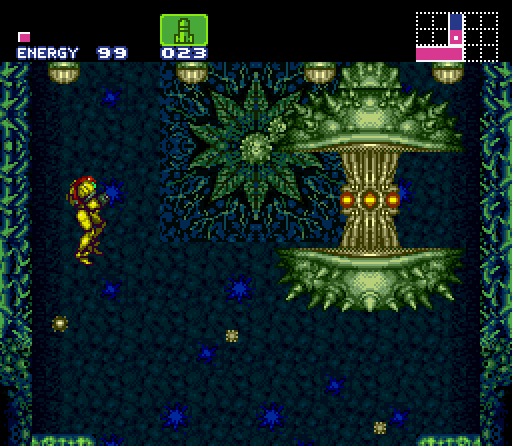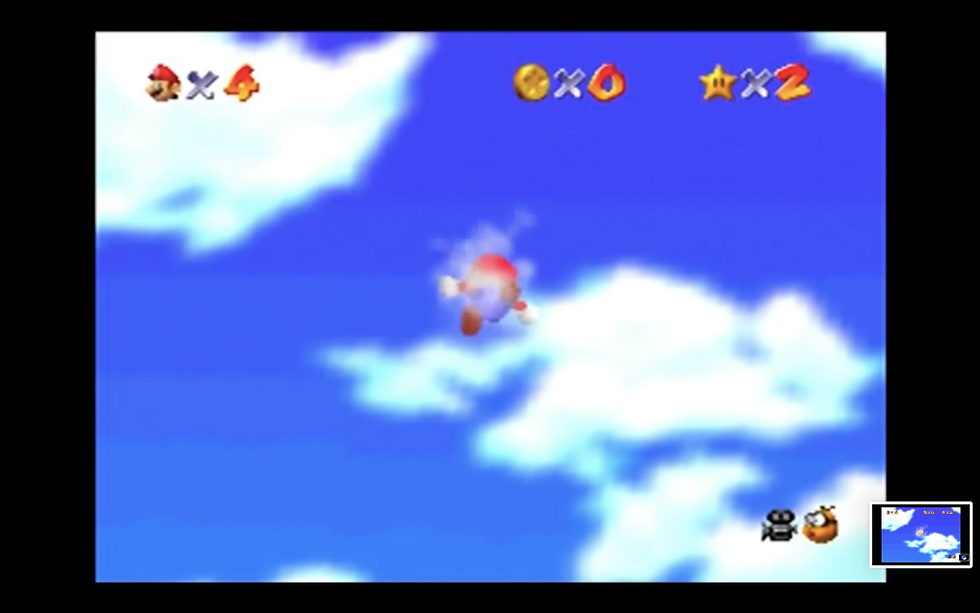Game Review: Super Metroid (SNES,1994)
- Daniel (Chan Yong) Lee

- Oct 18, 2019
- 3 min read
Super Metroid ostensibly dimunitizes man and introduces players into many layers of isolation. It pretends to be unforgiving and menacing, but never genuinely so. Despite being a game saturated by alien prowess, human significance in Super Metroid persists as game meets player.
The vastness of Super Metroid’s map is one of many ways by which humanity is presented as the lesser being. In earlier stages of the game, the scale of the map stands in contrast with a mere humanoid exploring the entirety of a planet. Samus Aran’s transformation into the morph ball to gain permission to explore the terrain is a more literal example of how the game communicates to its players their insignificance: adjust your form, only then you may proceed.

As the player relentlessly explores, the alien backdrop that is Zebes assumes a more organic, organ-like appearance. Bosses are attached to and borne from the terrain, its platforms elevated by fluids, alien organisms spread across its walls. An inkling that Samus is consumed by Zebes swells as the player ventures further, and as it does, the player begins to find comfort in familiarity. A metal platform after alien terrain, an item encased in a container resembling man-made structures, a save station scaled exactly for man; all such elements evocative of the human race become companions for Samus Aran: it is then the player realizes how desperate they’ve become. The backdrop, equipment, and other forms of life all alien, the player must then look towards the story to find meaning and company.
The story suggests: a powerful and heroic human bounty hunter retrieves the last Metroid, is ambushed, and must avenge her fallen companions by way of acquiring a the alien life-form stolen from them. Reality, however, tells a different story: an agent of genocide whose actions were justified by moral superiority now confronts the consequence of her failures. The hypocrisy of attempting genocide only to fail, to then retrieve a Metroid oblivious of her intentions and subject it to experiments - Super Metroid’s reality assumes a less glamorous narrative than games such as Super Mario Bros, a story of a common man rescuing a princess.

Super Metroid’s initial gameplay likewise assumes a form less dazzling than what the player is inclined to expect. With restricted abilities at the beginning of the game, Samus must leave countless areas unexplored. She must probe areas and equip herself with alien technology in order to fit through, destroy, and propel herself to the next chapter; one can therein say - quite safely - that progression in Super Metroid is cadenced with the player’s willingness to understand and employ enemy alien technology. Human representation in the mechanics of Super Metroid are likewise minuscule. Jump and run are the only represented actions man is capable of; everything else we see as an extension of Samus’s identity (upgraded suit, abilities, morph ball, energy replenishment) all seem alien owed to the methods by which we acquire them.

The aforementioned reading of Super Metroid renders it a bleak, dark game. However, when player (human) interaction marries alien technology in Super Metroid, the game starts to find a new facade. The players’ individual processes of appropriating alien technology to overcome their domain (planet Zebes) is what makes Super Metroid interesting. Jumping higher distances by using bombs unconventionally, skipping entire areas by using the dash upgrade, using the grappling hook to make the boss glitch out in place; all such actions are examples of player-game interactions from which human (player) tendencies are preserved.

One may choose to probe for secret areas to achieve a 100% item collection (which means nothing diegetically, but something to completionists), another may attempt to beat the game only by using limited weapons and abilities, and some may attempt speedruns, etc. Despite its minimization of human representation, Super Metroid encourages human tendencies to penetrate its gameplay experience. The intricate world building and mechanics paired with a flood of available player decisions creates an interesting tug of war between proceduralist and anti-proceduralist design. On the one hand, it can be seen as a proceduralist platformer that requires you to go certain routes and utilize certain items to meet a predetermined end. On the other, the methods and exploitations with which players can customize their experience adds depth that will be savored by playcentrists.
When exploiting, short-cutting, and/or utilizing counter-intuitive mechanics to make progress, it felt as though I were flirting with the designers of Super Metroid, rather than outsmarting them. The fact that I was unsure whether I was going with or against the designers’ intentions, I think, speaks much about the depth of the game. Super Metroid's clever lack of human representation and its profound respect for player decision therein renders it a game insincerely menacing to human identity, and playfully conducive to human tendencies.







Comments